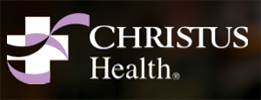Description
Summary: High Reliability Organization, the Coordinator Sepsis, reporting to the Director of Quality, is responsible for coordination activities of the Sepsis Clinical Improvement Program in the hospital. The Sepsis Coordinator works collaboratively with hospital and medical staff leadership to utilize data and evidence-based practice to drive strategies in performance improvement, regulatory, and patient safety activities that promote a culture of learning, improvement, and patient safety of the sepsis patient. Analyzes and reviews provided data for opportunities for improvement/process improvement to reduce the impact of sepsis and severe sepsis. This role is responsible for organizing and coordinating specific quality activities and for compiling/displaying/evaluating information from program for assigned hospital and medical staff committees and teams. This role is expected to apply clinical knowledge and analytical skills to assist the Director of QM and support change with a strong focus on improving quality outcomes and results. Responsibilities:
- Meets expectations of the applicable OneCHRISTUS Competencies: Leader of Self, Leader of Others, or Leader of Leaders.
- Communicate effectively to different audiences.
- Proficient in computer skills using EXCEL, PowerPoint, MSOffice, and Flowchart tools.
- Knowledgeable on High Reliability Principles and PDSA methodology.
Source: NAHQ Workforce Accelerator Competency Framework 2022: Eight Domains
- Quality Leadership and Integration-Advance the organization's commitment to health care quality through collaboration, learning opportunities and communication. Lead the integration of quality into the fabric of the organization through a coordinated infrastructure to achieve organizational objectives. Domain Level: Foundational.
- Performance and Process Improvement-Use performance and process improvement (PPI), project management and change management methods to support operational and clinical quality initiatives, improved performance and achieve organizational goals. Domain Level:Foundational.
- Population Health and Care Transitions-Evaluates and improve health care processes and care transitions to advance the efficient, effective, and safe care of defined populations. Domain Level:Foundational.
- Health Data and Analytics- Leverage the organizations analytic environment to help guide data-driven decision-making and inform quality improvement initiatives. Domain Level:Foundational.
- Regulatory and Accreditation-Direct organization wide processes for evaluating, monitoring, and improving compliance with internal and external requirements. Lead the organization's processes to prepare for, participate in, and follow up on regulatory, accreditation and certification surveys and activities. Domain Level:Foundational.
- Patients Safety-Cultivate a safe healthcare environment by promoting safe practices, nurturing a just culture, and improving processes that detect, mitigate, or prevent harm. Domain Level: Foundational.
- Quality Review and Accountability-Direct activities that support compliance with organization wide voluntary, mandatory, and contractual requirements for data acquisition, analysis, reporting, and improvement. Domain Level: Foundational.
- Professional Engagement-Engage in the healthcare quality profession with a commitment to practicing ethically, enhancing one's competence, and advancing the field. Domain Level:Foundational.
Job Requirements: Education/Skills
Experience
Licenses, Registrations, or Certifications
- CPHQ (Certified Professional in Healthcare Quality) preferred
Work Schedule: Varies Work Type:
Full Time EEO is the law - click below for more information: https://www.eeoc.gov/sites/default/files/2023-06/22-088_EEOC_KnowYourRights6.12ScreenRdr.pdf We endeavor to make this site accessible to any and all users. If you would like to contact us regarding the accessibility of our website or need assistance completing the application process, please contact us at (844) 257-6925.
|
 Christus Health
Christus Health

 Jan 16, 2025
Jan 16, 2025 

